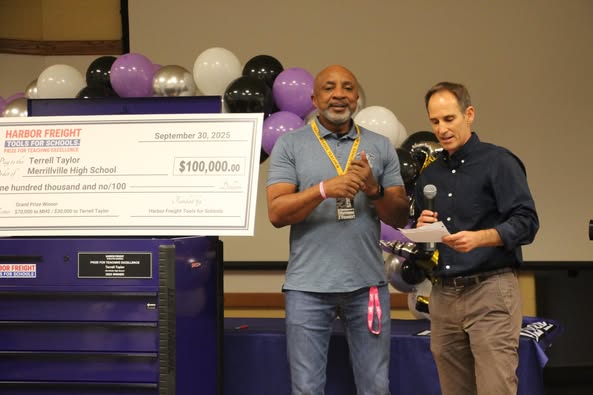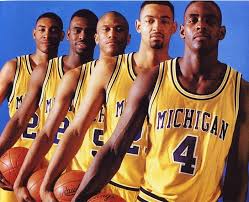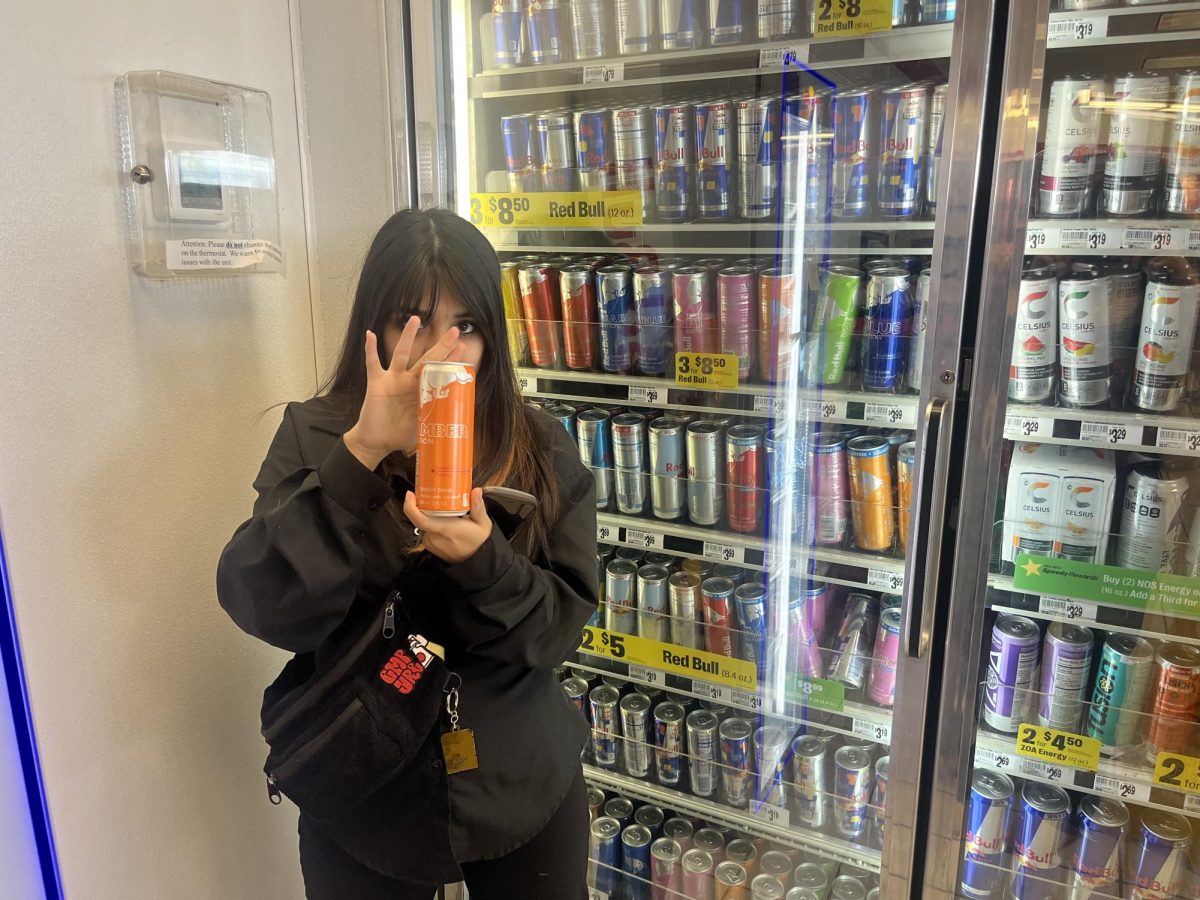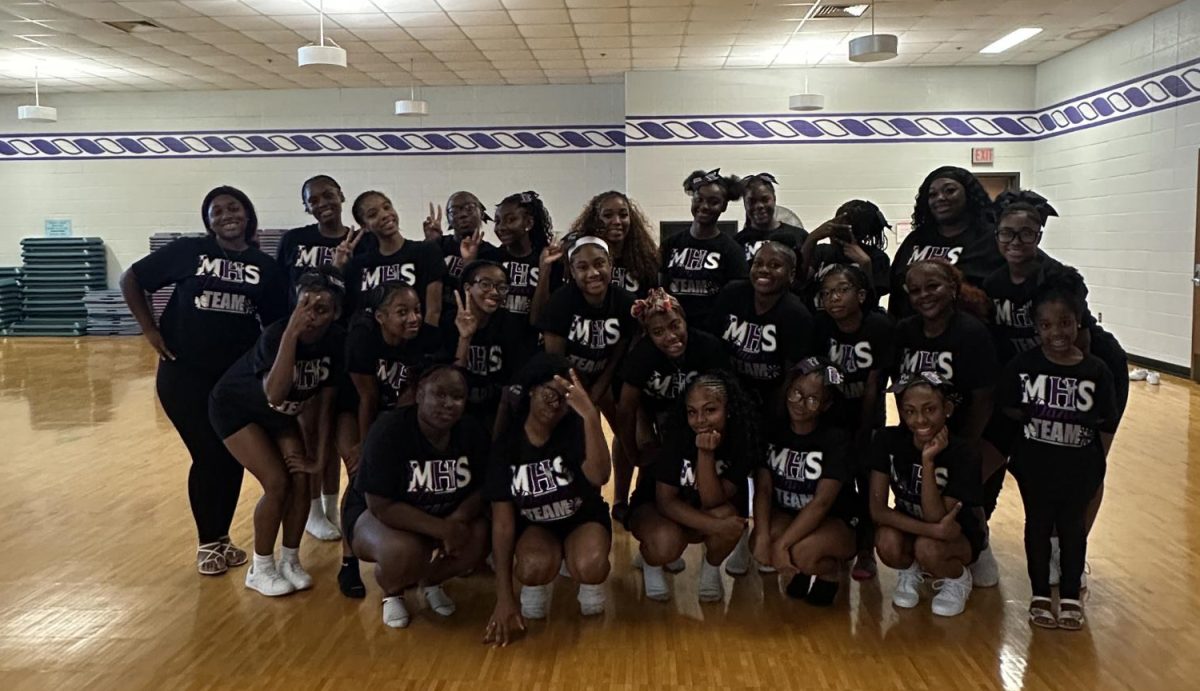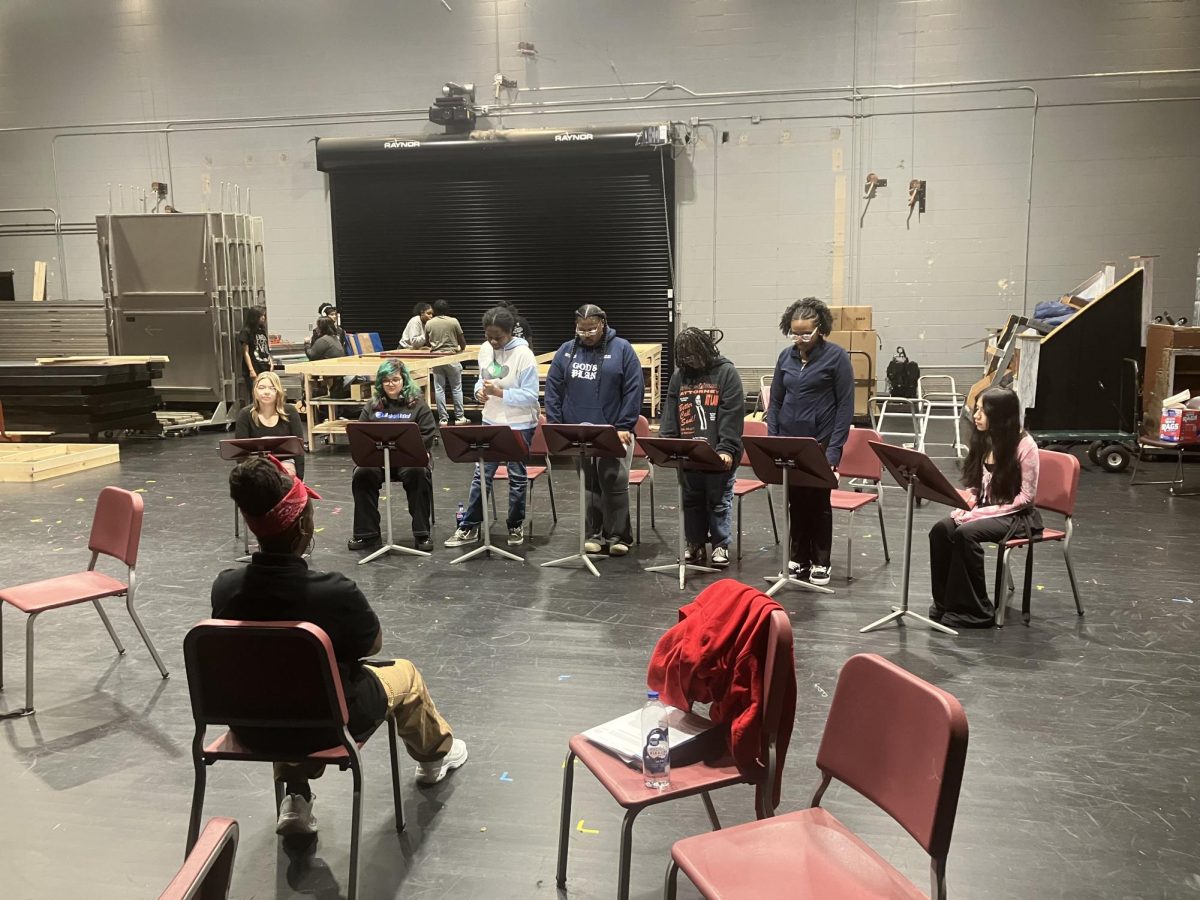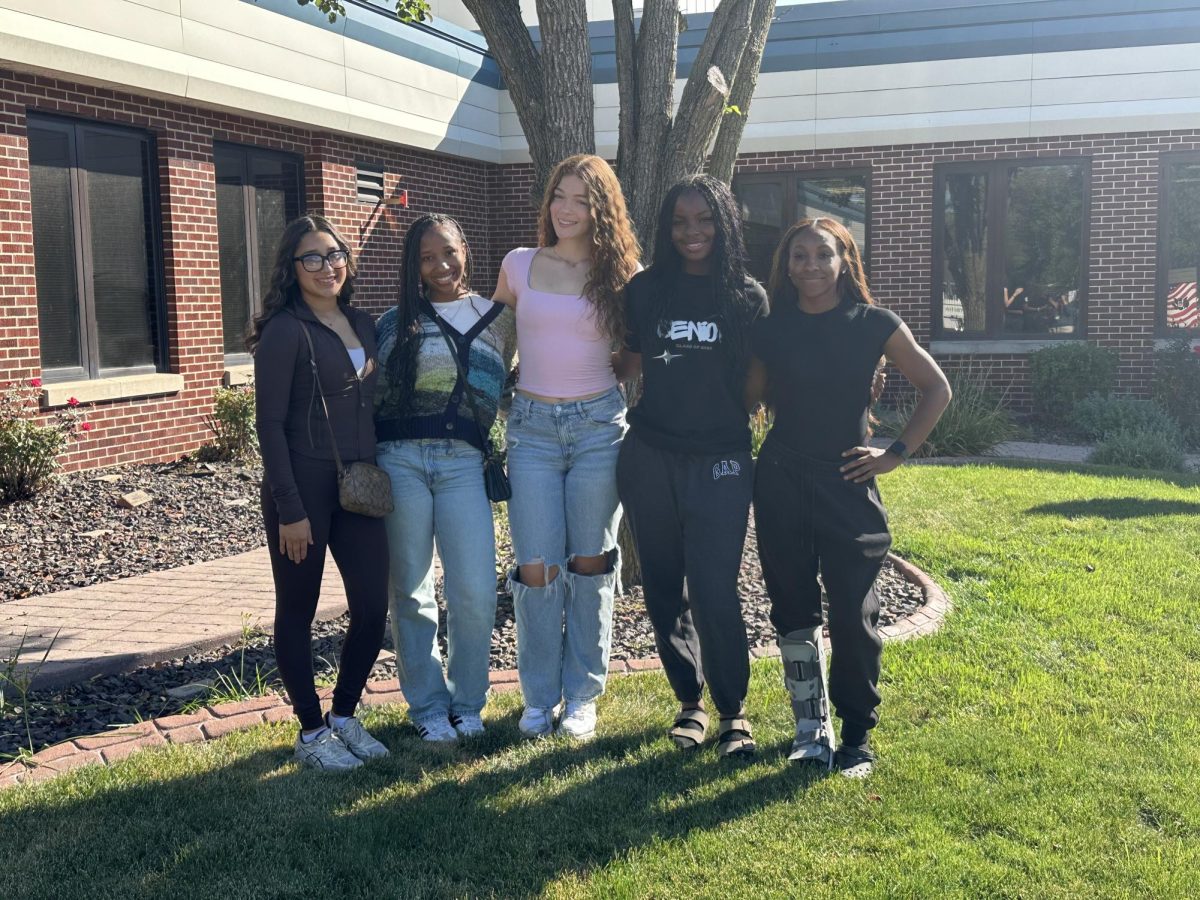Tired and dripping in sweat, 19-year-old Coco Gauff slams down the ball in her opponents court, scoring her final point leading to her being the youngest African-American woman to win the U.S. Open since Serena Williams.
Gauff’s win sent shock waves throughout the nation, inspiring young, black female tennis players like her.
Senior Caidyn Morgan, a varsity tennis player, was inspired by Gauff’s composure throughout the match, even with difficult circumstances, and the way she went about playing her sets.
“For me, during sports, it’s the hardest to stay well mentally,” Morgan said. “She just seems always really composed even if that’s not the case.”
Another senior, Laci Hamilton, who is at the top of her varsity team playing No. 1 singles, revels in the common traits she and Gauff share, especially their big successes despite their young age.
“She’s young,” Hamilton said. “She’s in our age group, and she started playing pro tennis when she was like 15. So, that’s inspiring, and she played in the U.S. Open. Young people can do big things.”
Junior Jamaelyn Sanders was inspired by Gauff’s passion for tennis and her growth over the years from an amateur to a professional.
“Watching her for so long, how she improved from ten years old to now is a lot,” she said. “A lot has happened. She really inspires me by working harder and actually getting to where I need to be in my tennis life.”
During one of her matches, Gauff faced some difficulties with her opponent Laura Siegemund and the female referee. Siegemund claimed that she was never ready to receive Gauff’s serves, and the referee claimed that Gauff played too fast to call the points and penalties in time. Still, with the crowd on her side, Gauff called out the referee and Siegemund for their fallacies and continued to persevere through the difficulties.
Hamilton, who watched the match live, was irritated by the referee and Siegemund, but was impressed by the fact that Gauff was able to stand up for herself and still win the match.
“That just goes to show that people will do anything to slow you down, get in your way,” she said. “You’ll always have people who will do malicious things just to get in your way. People will always hate on you, pray on your downfall. Preserve through that.”
Sanders observed that Siegemund was imply not following the rules of the match and was basically all over the place. Sanders also believed that the referee was purposely refusing to properly follow the rules as well.
“Coco Gauff … was just over it because she’s been doing it the whole game,” she said. “She was just like ‘I can’t take this anymore,’ and the referee, she knew everything about it.”
Alongside believing that the referee and Gauff’s opponent were simply not following the rules, Morgan also thinks that the conflicts stemmed from who Gauff was: a young, Black female professional tennis player at the national level.
“I felt some of it was unnecessary,” she said. “It was just so uncalled for, but just like I said, she kept it calm and collected. As she should, you know? Some [conflicts] just seemed like genuine issues like ‘Hey that’s not right’ or whatever, but some of them seemed personal.”
Finally, when Gauff won that match against Siegemund and the U.S. Open overall, many fans expressed their excitement for her victory, especially with her status, and pride in Gauff for preserving through complications in the heat of the moment.
“Her being able to come back, calm her nerves, get through that, control her emotions, and control her game was good,” Hamilton said. “Winning the U.S. Open was a very cool thing because she’s the youngest now since Serena Williams.”
Morgan was extremely proud of the fact that there were more Black women being added to those who have created numerous successes for themselves in spaces where their opportunities were usually limited.
“I felt really proud of her because as a Black woman, I always want to see black women win,” she said. “I felt really proud of her because despite everything that happened during the match and leading up to the match, she still won. She came out with the win.”
For Sanders, seeing Gauff win was a moment that called for tears and screams of joy.
“When I had found out like a minute after she won, I literally got up from my couch; I ran and screamed all around the house ‘She won! She won! She won!’” she said. “I was in bawling tears actually. I was really excited she won, and the youngest black female to win the U.S. Open since 2012. That’s a long time.”
Gauff’s win holds a serious amount of weight in the sphere of tennis and leads to the influence of many people in various ways. For Sanders, Gauff’s victory was a sign not to give up and to keep going while trying her hardest, and she believes many others share a similar sentiment.
“People that’s younger than me are probably thinking the same thing, or people older than me probably thinking the same like ‘Hey, I should probably get back into tennis because I saw her win, and she inspired me to get back into tennis,’” she said.
For Hamilton, Gauff’s support system is what she admires most about her success and believes that it is what keeps one motivated and focused, which is the biggest thing when it comes to competing on a big stage.
“Establishing a good support system in your life is really a good key to life, just to keep you…in your game,” she said. “You can’t do it all yourself, you know? You need outside things to help influence you.”
Morgan’s biggest takeaway from Gauff winning the U.S. Open was her tenacity and her insistence on standing up for what she believed in.
“I think she influenced the world by showing people that if you fight for what you…think is right, then good things will happen because you stand your ground,” she said. “If you stay firm in what you stand for … you’ll get to where you want to be.”

